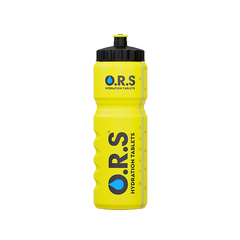What Holiday Destinations Have The Highest Sickness Rates?

Nobody likes being ill on holiday, missing out on the sunshine, fun activities, and sightseeing. That is why it might be worth finding out what the worst destinations for getting ill are before you book your next vacation.
According to the Forbes Advisor Travel Bug Index, the place where tourists most often end up over a toilet bowl is Punta Cana in the Dominican Republic.
Although it has some of the most beautiful white sandy beaches in the world, 9.61 per cent of visitors who use travel forums have had a holiday-related sickness while there.
Travel expert at Forbes Advisor Kevin Pratt said: “While a tummy bug might not sound like much, if you have waited all year for a holiday which you then spend alone in a hotel room feeling awful, it can actually be devastating.”
Tourists considering a holiday in the Dominican Republic are required to have their Hepatitis A and Tetanus injections, as well as take anti-malaria pills and avoid tap water as much as possible.
The second destination that sees lots of tourists falling ill is Sharm El Sheikh in Egypt.
According to the report, 10.76 per cent of travel forum posts have referred to sickness while holidaying at the seaside resort, which is well-known for its diving opportunities.
A significant number of these tourists complained about food poisoning in Sharm El Sheikh, which is why tap water, street food, and dishes left out for too long should be avoided.
Forbes’ third location where sickness regularly occurs is Sal in Cape Verde. This beautiful island is popular for its year-round sunshine and crystal-clear waters.
However, 11.2 per cent of travellers complained of sickness after arriving at their hotel in Sal.
The NHS advises tourists to have their Hepatitis A and Tetanus jabs before flying to Cape Verde, and suggests taking anti-malaria tablets, though the risk of contracting malaria is low.
Coming in joint fourth and fifth positions are Playa del Carmen and Cabo San Lucas, which are both in Mexico. Nearly seven per cent of travel forum posts referred to sickness for Playa del Carmen, while 8.09 per cent did for Cabo San Lucas.
The remaining top ten destinations comprised Bali in Indonesia, Hurghada in Egypt, Tulum and Cancun in Mexico, and Boa Vista in Cape Verde.
Mr Pratt noted that “prevention is always better than cure”, so make sure you try to avoid getting ill as much as possible.
This includes steering clear of high-risk foods, including dairy and rare meat; drinking bottled water only and ditching ice and salads; being cautious when eating in buffets, particularly foods that have been left out for a while; and washing your hands.
It is also a good idea to check reviews of restaurants online to see whether previous visitors have complained of food poisoning.
If you do become sick on holiday, it is important to look after yourself to speed up recovery.
For food poisoning, the NHS recommends resting as much as possible, eating only small, light, bland foods when you begin to feel well, and avoiding spicy, fatty, caffeinated, fizzy or alcoholic foods and drinks.
It is also important to replace electrolytes after throwing up by taking ORS hydration tablets. These help to prevent dehydration, which is especially important if you’re on holiday in a hot country.

